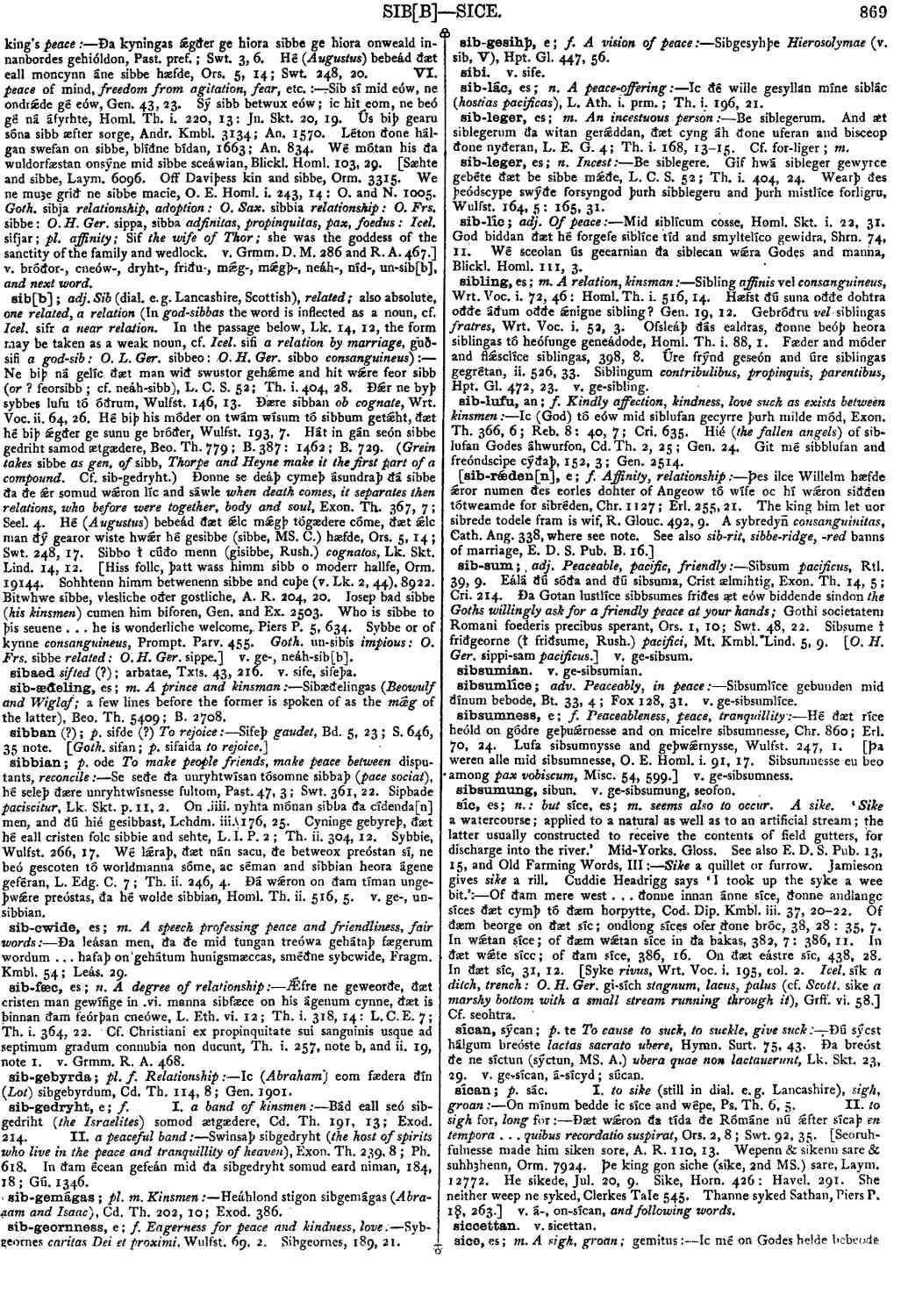sib
- adjective
- Lk. 14, 12, the form may be taken as a weak noun, cf. Icel. sifi a relation by marriage, guð*-*sifi a god-sib: O. L. Ger. sibbeo: O. H. Ger. sibbo consanguineus)
-
Ne biþ ná gelíc ðæt man wið swustor gehǽme and hit wǽre feor sibb (
or
? feorsibb ; cf. neáh-sibb),- L. C. S. 52; Th. i. 404, 28.
-
Ðǽr ne byþ sybbes lufu tó óðrum,
- Wulfst. 146, 13.
-
Ðære sibban
ob cognate,
- Wrt. Voc. ii. 64, 26.
-
Hé biþ his móder on twám wísum tó sibbum getǽht, ðæt hé biþ ǽgðer ge sunu ge bróðer,
- Wulfst. 193, 7.
-
Hát in gán seón sibbe gedriht samod ætgædere, Beo. Th. 779; B. 387: 1462; B. 729. (Grein takes sibbe as gen, of sibb, Thorpe and Heyne make it the first part of a compound. Cf. sib-gedryht.) Ðonne se deáþ cymeþ ásundraþ ðá sibbe ða ðe ǽr somud wǽron líc and sáwle
when death comes, it separates then relations, who before were together, body and soul,
- Exon. Th. 367, 7; Seel. 4.
-
Hé (Augustus) bebeád ðæt ǽlc mǽgþ tógædere cóme, ðæt ǽlc man ðý gearor wiste hwǽr hé gesibbe (sibbe, MS. C.) hæfde, Ors. 5, 14 ; Swt. 248, 17, Sibbo ł cúðo menn (gisibbe, Rush.)
cognatos,
- Lk. Skt. Lind. 14, 12.
Bosworth, Joseph. “sib.” In An Anglo-Saxon Dictionary Online, edited by Thomas Northcote Toller, Christ Sean, and Ondřej Tichy. Prague: Faculty of Arts, Charles University, 2014. https://bosworthtoller.com/27572.
Checked: 0